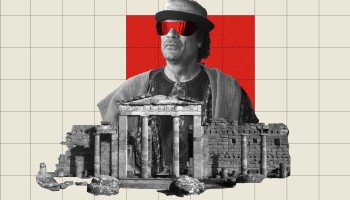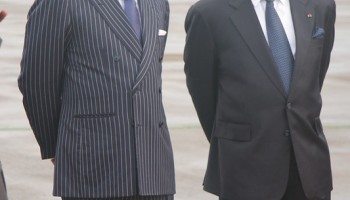Ibrahim Magu, the EFCC’s acting head, disclosed the exact sum in a keynote address at an event organized by the Bureau of Public Procurement (BPP) held in Lagos, the country’s largest city, on Monday.
Just one third of the stolen funds could have been used to construct over 500 kilometers of roads, build some 200 schools, educate about 4,000 children, build 20,000 units of two-bedrooms houses across Nigeria, and even more, Magu said in his address, delivered on his behalf by the EFCC’s secretary.
“The cost of this grand theft, therefore, is that these roads, schools and houses will never be built and these children will never have access to quality education because a few rapacious individuals had cornered for themselves what would have helped secure the lives of the future generations,” Magu said, decrying the overwhelming financial loss.
The event in Lagos was the opening ceremony for the 2019 First Batch Conversion Training Programme to Procurement Cadre for Federal Parastatal and Agencies, a law enforcement training organized by the BPP aimed to increase efficiency and transparency.
“Indeed, corruption could kill Nigeria, if we do not scale up our proficiency in contract and procurement management process,” Magu added.
The EFCC was founded by the Nigerian government in 2003 and was first run by Nuhu Ribadu, who later ran unsuccessfully for president. Last December, Ribadu received the Anti-Corruption Lifetime/Outstanding Achievement Award from the Rule of Law and Anti-Corruption Center, a non-profit based in Doha.
Magu was one of Ribadu’s early recruits to the EFCC, where he served as its first head of Administration and Finance, and then as its head of Economic Governance.
President Muhammadu Buhari appointed Magu EFCC’s acting chairman in November 2015 after firing its previous chairman, Ibrahim Lamorde. In August of that year, Lamorde had denied allegations that he diverted $5 billion from the EFCC.
In a speech at last November’s inaugural Paris Peace Forum, President Buhari called for more rigorous actions against perpetrators of financial crimes, saying that “the cancerous effects of illicit financial flows and corruption on the socio-economic development of countries are glaringly evident.”
Buhari, who is known for his authoritarian style, launched a total war against corruption soon after his election in 2015, vowing to eradicate graft in Nigeria and punish its perpetrators to the fullest extent of the law.
Although Buhari’s term has seen high rates of corruption convictions and the recovery of billions in stolen public funds, corruption watchdogs have noted that Nigeria is actually moving backwards when it comes to graft.
“Where institutions of accountability are not working well, such cases [of recovered stolen public money] pose a complex problem: how to make sure that the money is not embezzled again, and actually benefits the real victims of corruption – the ordinary people whose state finances were plundered,” Transparency International wrote in a feature about asset recovery published last August.






